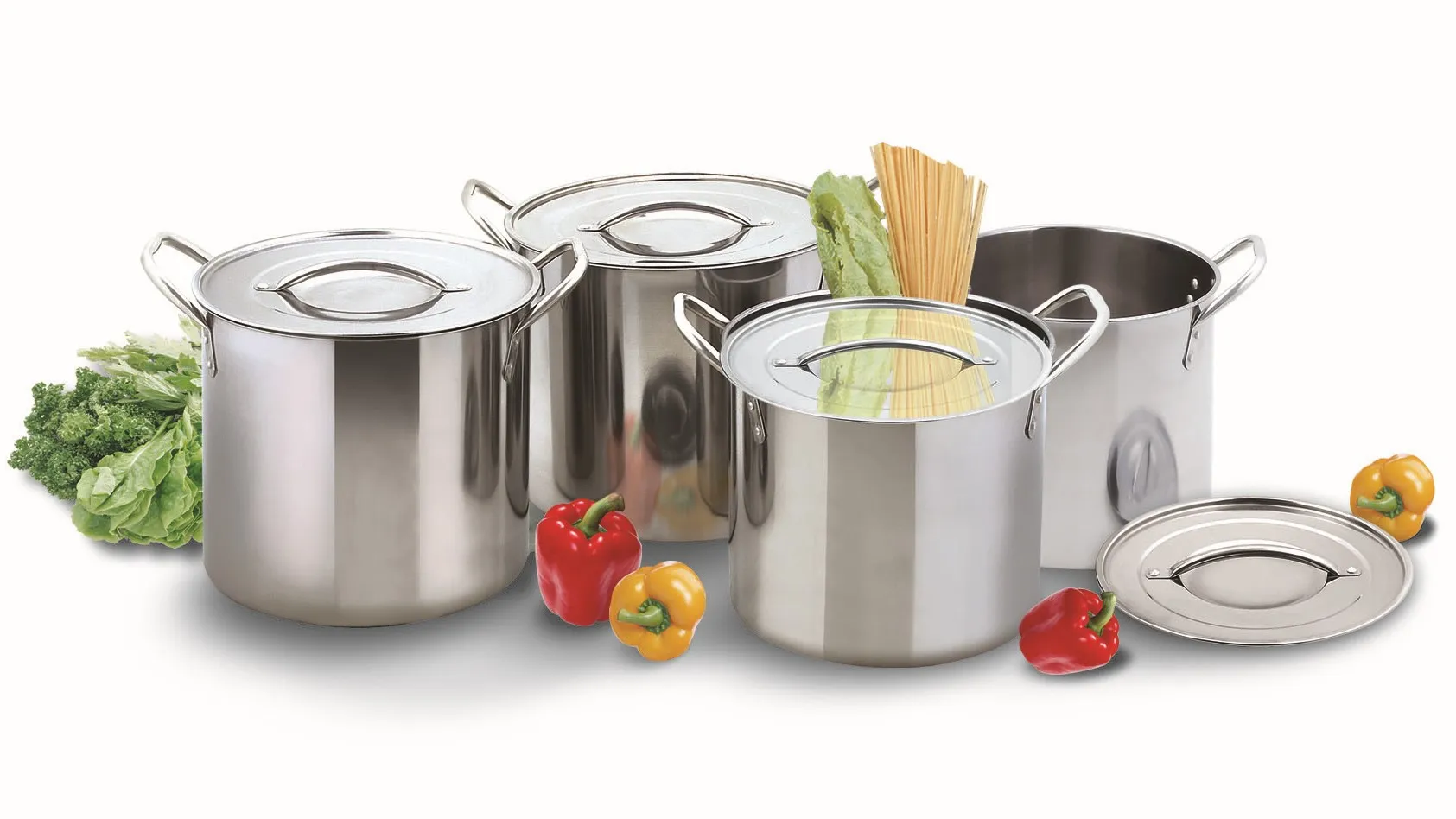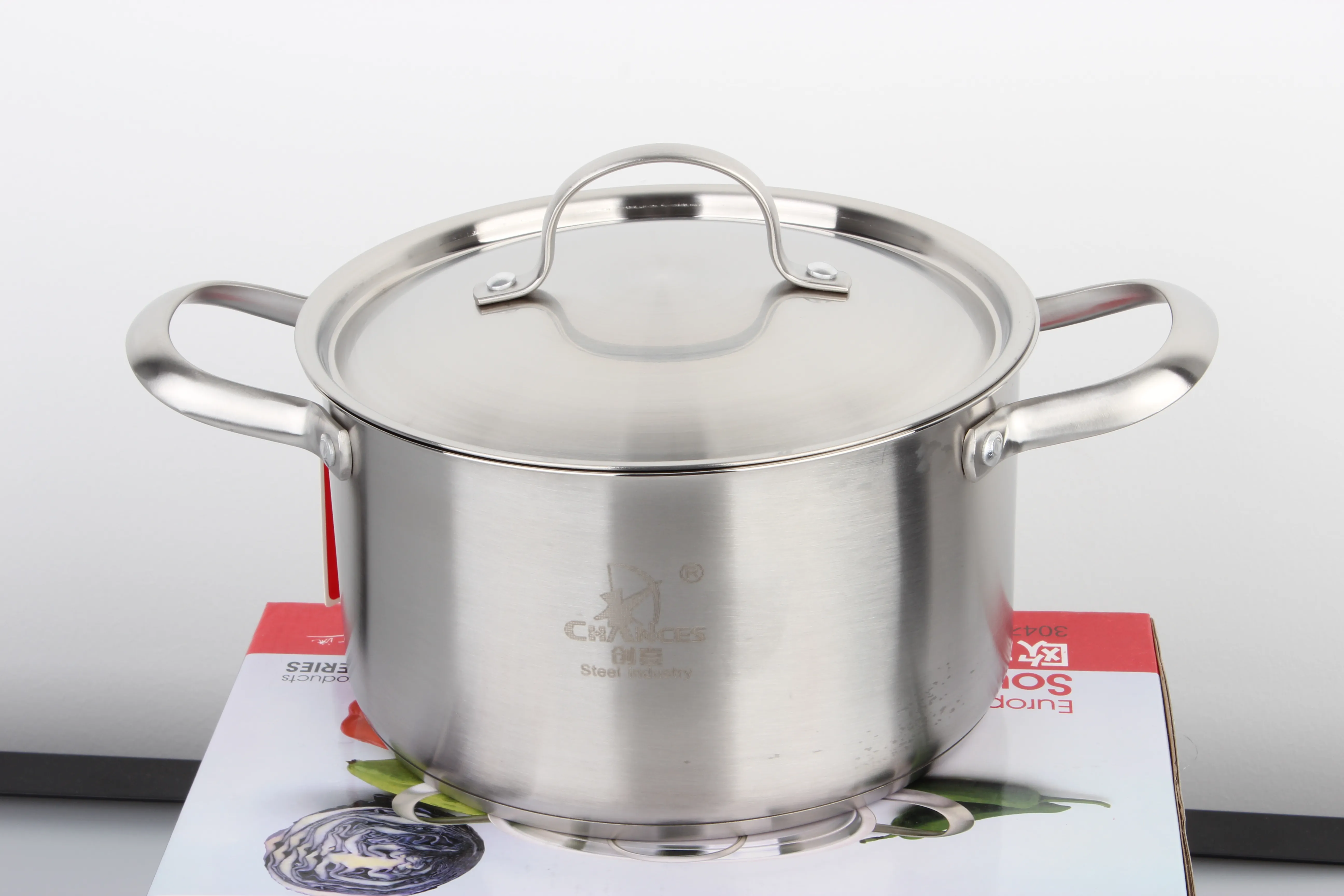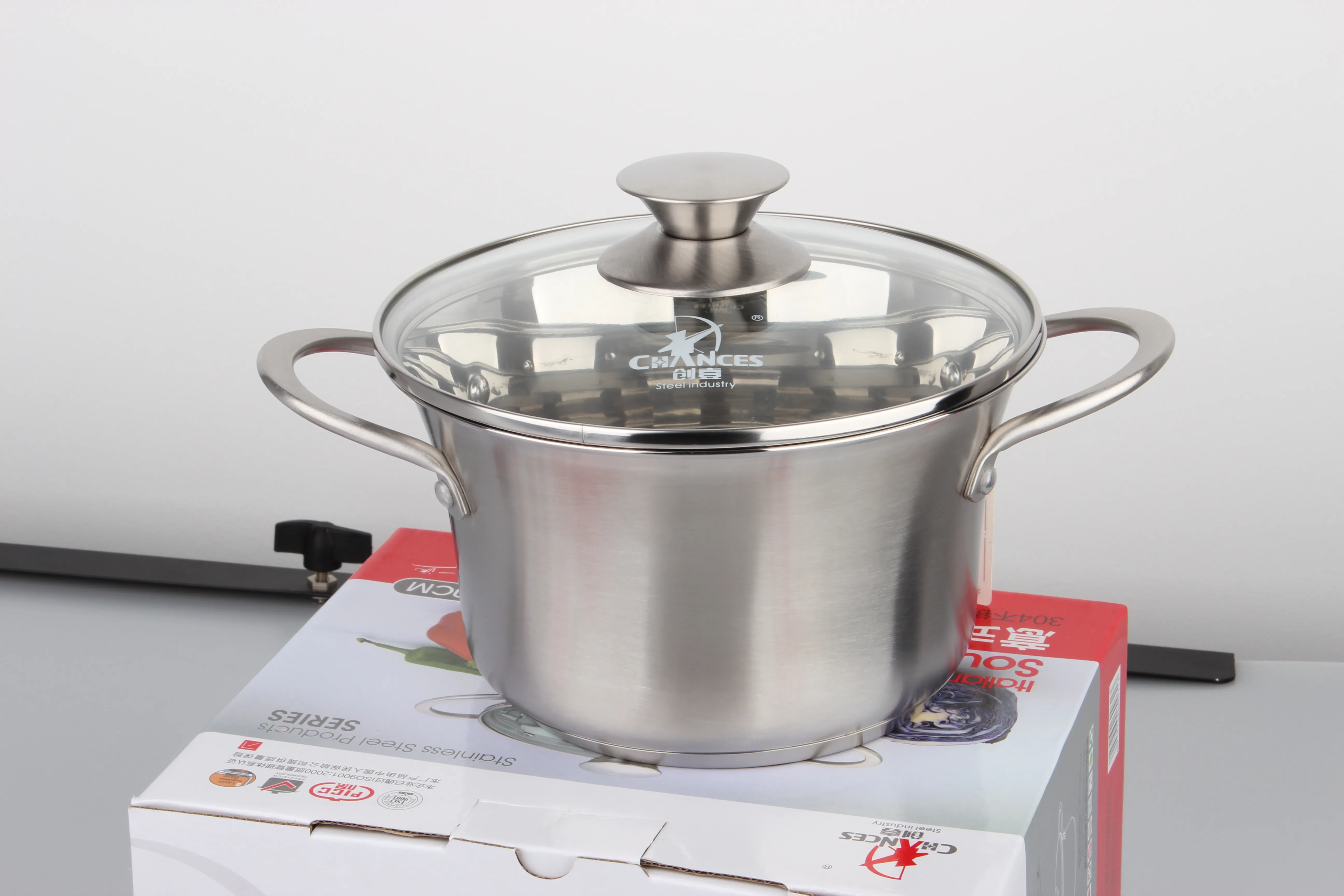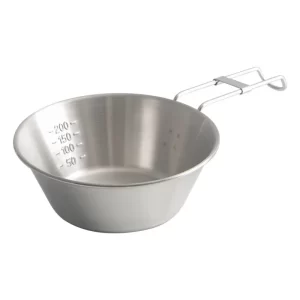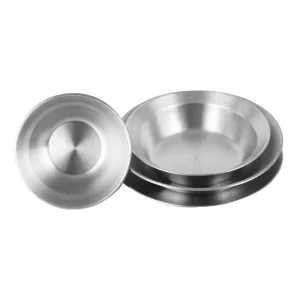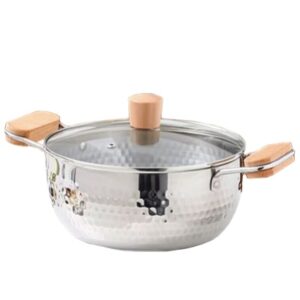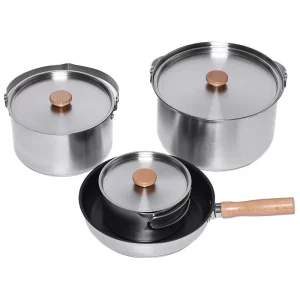In the kitchen, the stock pot is an essential tool for every home cook and professional chef. While it may not be used every day, it is vital to have a stock pot that always performs well. At the same time, its design is not remarkable, but it is indeed very practical, especially when we need a large capacity for simmering, it is here specifically for long periods, when large batches of ingredients need to be cooked, and it is often used for large batches of ingredients such as soup bases, stews, or cooking pasta. So, what is a stockpot? And how does it differ from a Soup Pot? In this article, Chancescook will explore the differences between the two, to help you better choose the right cooking tool.
Índice
AlternarWhat is a Pote de stock?
A stock pot is a large-capacity, uniquely designed, tall, cylindrical pot, usually made of stainless steel, aluminum, or copper. It is designed for long simmering times. Its primary use is for making soups, stews, boiling pasta, and other dishes that require a lot of liquid. Stock pots are designed with the following key features:
- Grande capacidade: stock pots are distinguished by their large size, deep side walls, and wide base, usually ranging from 8 liters to 20 liters, making them suitable for simmering large quantities of delicious food at once.
- Tall Design: Its tall shape keeps ingredients fully immersed and ensures even heating.
- Thick Bottom: The thicker bottom of the stockpot prevents ingredients from sticking or burning during long cooking times and keeps food warm.
- Versatile: Whether you’re making soups, chili, stock, boiling pasta, or preparing seafood stock, you can have a stockpot that will hold heat, heat evenly, and cook your food perfectly.
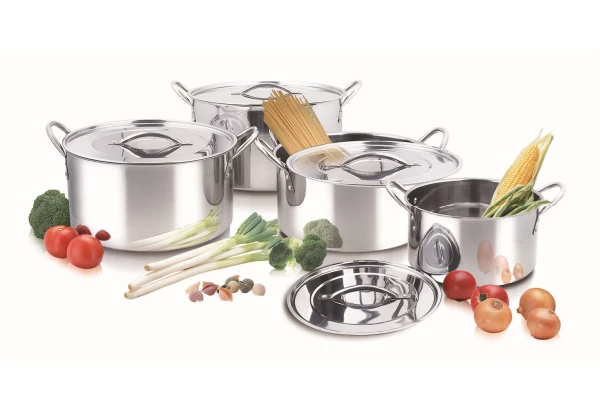
Common Uses for Stock Pots
The design and features of stock pots make them uniquely useful and useful in the cooking process. It can be widely used in the kitchen for various cooking scenarios. Here are some common uses for stock pots:
- Making stock and soup base: the most basic use of a stockpot is to cook soup, which is needed to make delicious soups in both homes and restaurants. In cooking soup, the capacity and depth of the saucepan should match the number of ingredients so that the soup can be simmered with a richer flavor.
- Braising large meats: braising is an important technique in the cooking process and is another use for the stockpot. Many gourmets enjoy simmering various dishes in their stock pots, whether it’s beef stew, chicken stew, or braised ribs.
- Cooking pasta and rice: thanks to its large capacity, the stockpot can cook large quantities of pasta or other noodles at once to avoid sticking. Ideal for cooking large batches of rice, especially at family gatherings or parties.
- Making sauces and stewing ingredients: used to cook a variety of sauces and dressings, the large capacity of the saucepan can hold a large amount of liquid for easy blending and heating. Ideal for stewing beans, mixed grains, or other ingredients that require a long cooking time.
- Fermenting and pickling: Stock pots can also be used as fermentation vessels, ideal for making large batches of dough or other fermented foods.
All in all, stock pots are very versatile in the kitchen, not only for cooking soups and stewing dishes, but also for making braised meat, steaming foods, and stir-frying. With good skills, you can cook tantalizing food.
What is a Panela de sopa?
A Soup pot is a wide, shallow pot that is typically used in the home kitchen to quickly make soup or steam a variety of small ingredients. Because it is usually wider and shallower, the capacity of a soup pot is usually between 4 and 8 liters, making it suitable for everyday family use and for cooking smaller amounts of food. Compared to the Stock Pot, the Soup Pot is designed for direct heat and quick cooking. It is used by many families to make small amounts of soups, and stews or to quickly simmer ingredients. Great for people who want easy meals but don’t want to eat out and cook for themselves.
Stock Pot vs. Soup Pot
| Feature | Pote de stock | Panela de sopa |
| Forma | Tall, cylindrical, and with a thick bottom for slow, even cooking | Wide and shallow, ideal for quick cooking |
| Capacity | Large, typically 8 to 20 liters | Smaller, typically 4 to 8 liters |
| Purpose | Best for long, slow cooking like making broth or boiling large quantities | Best for quick soups, stews, or smaller meals |
| Cooking time | Suitable for long-simmering recipes | Ideal for quick-cooking dishes |
| Materials | Often made from stainless steel or aluminum, designed for slow, long-term cooking | Lighter materials, suited for everyday use |
How to Choose the Suitable Cookware?
Choosing the right soup pot requires comprehensive consideration based on personal needs and the actual situation. When choosing a soup pot, you need to consider several factors such as capacity, material, shape, scope of application, and so on. When choosing and using a stock pot or saucepan correctly, can not only improve the cooking efficiency but also ensure the nutrition and taste of the food.
- Large batch simmering: If you need to simmer a large amount of ingredients at a time, or make soups and stews that take a long time to simmer, a stockpot is undoubtedly the ideal choice for you.
- Quick daily cooking: If you prefer to cook soups or stews quickly and easily daily, a soup pot will be more suitable.
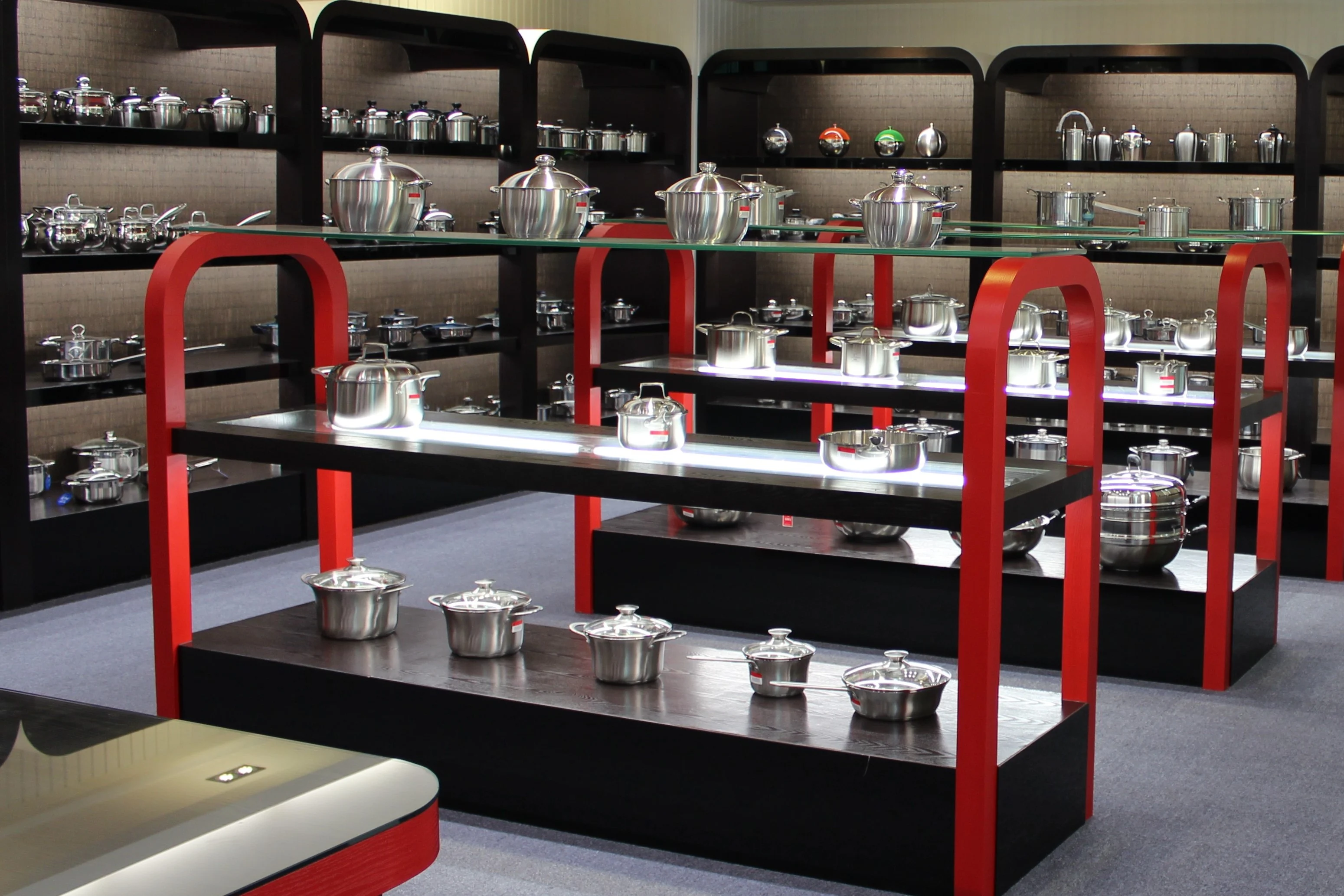
Conclusão
With the combination of our unique pot designs and modern innovations, they are the perfect choice for every chef’s kitchen cooking tool selection. Chancescook, as a stainless steel pots and pans manufacturer, is committed to producing high-quality stock pots and pans, with a focus on design and material selection to ensure that each of our products offers superior durability, heat conduction, and ease of use. With advanced production equipment and an experienced R&D team, we can develop molds on our initiative and can provide customized services to meet different customers’ needs.
Our cookware is made of high-quality 304 or 316 food-grade stainless steel, which is not only safe and durable but also easy to clean and long-lasting. In addition, our pots and pans undergo rigorous quality testing to ensure reliability and provide optimal performance. If you are looking for efficient and reliable stainless steel cookware, contact Chancescook, we are your trusted partner.
Pedir um orçamento gratuito
Se desejar obter mais informações sobre os nossos produtos de cozinha por atacado, contacte-nos!
Não hesite em contactar-nos
Não hesite em contactar-nos
Aldeia de Hongqi da cidade de Caitang após o pavilhão do pé da chuva, Chaozhou, Guangdong, China

